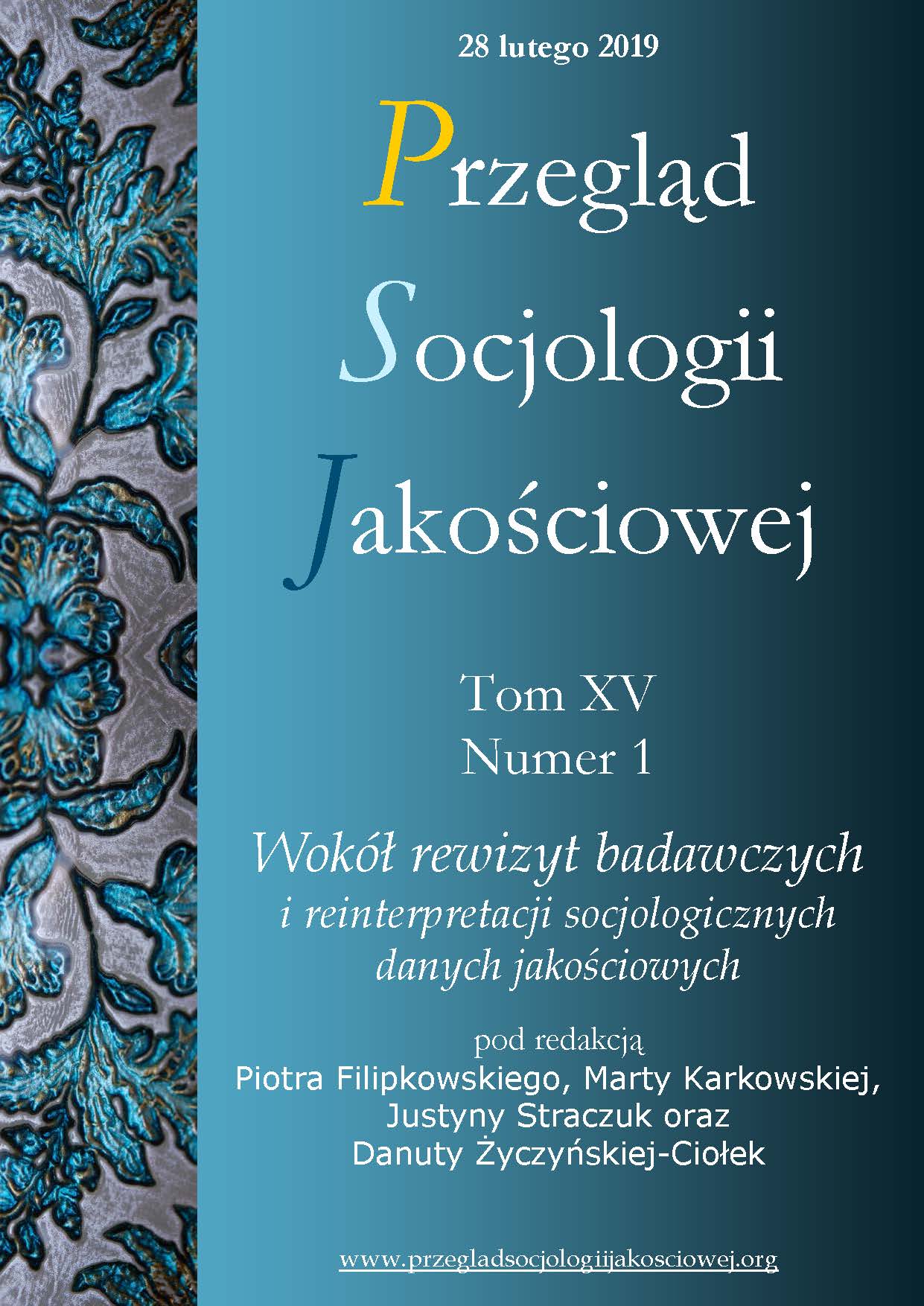Using the Mass Observation Project: A Case Study in the Practice of Reusing Data
DOI:
https://doi.org/10.18778/1733-8069.15.1.03Słowa kluczowe:
subjective, qualitative, reuse, methodology, dataAbstrakt
Mass Observation was founded in 1937 to collect subjective, qualitative data on everyday life in Britain, and has continued to record the ordinary and the everyday ever since. Mass Observation’s purpose has always been to make the data it collects available to a range of disciplines to apply their own methodological approaches upon, resulting in data that can be reused within different projects and disciplines. This paper will use Mass Observation as a case study to illustrate how a sociological shift in attitude towards subjective data has played out in the use of a dataset traditionally viewed as a historical archive. I will review how the data itself is used to define and design methods of analysis, examining the epistemological implications of this approach to research design and the new dimension to the researcher-data subject relationship that is introduced. I will conclude by suggesting that research using Mass Observation exemplifies the methodological opportunities and insights that can be gained by adopting a broader, multi-disciplinary research approach to reusing data.
Pobrania
Bibliografia
Courage, Fiona. 2018. The value of higher education: a temporal analysis from Mass Observation. Brighton: University of Sussex.
Google Scholar
Hinton, James. 2013. The Mass Observers: a history, 1937-1949. Oxford: Oxford University Press.
Google Scholar
Hollway, Wend and Tony Jefferson. 2000. Doing qualitative research differently. London: Sage.
Google Scholar
Kramer, Anne-Marie. 2014. “The Observers and the Observed: The ‘dual Vision’ of the Mass Observation Project.” Sociological Research Online 19:1-11.
Google Scholar
Lindsey, Rose and Sarah Bulloch. 2014. “A Sociologist’s Field Notes to the Mass Observation Archive: A Consideration of the Challenges of ‘re-Using’ Mass Observation Data in a Longitudinal Mixed-Methods Study.” Sociological Research Online 19:1-14.
Google Scholar
Madge, Charles and Tom Harrisson. 1937. Mass Observation. London: Frederick Muller Ltd.
Google Scholar
Madge, Charles and Tom Harrisson. 1938. First Year’s Work. London: Lindsay Drummond.
Google Scholar
Moor, Liz and Emma Uprichard. 2014. “The Materiality of Method: The Case of the Mass Observation Archive.” Sociological Research Online 19:1-11.
Google Scholar
Moore, Niamh. 2006. “The Contexts of Context: Broadening Perspectives in the (Re)Use of Qualitative Data.” Methodological Innovations 1:21-32.
Google Scholar
Pollen, Annabella. 2013. “Research methodology in Mass Observation past and present: ‘Scientifically, about as valuable as a chimpanzee’s tea party at the zoo’?” History Workshop Journal 75:213-235.
Google Scholar
Purbrick, Louise. 2007. The wedding present: domestic life beyond consumption. Hampshire: Ashgate.
Google Scholar
Purbrick, Louise. 2008. “Present life: Mass Observation and understanding the ordinary.” Qualitative Researcher 7: 9-11.
Google Scholar
Savage, Mike. 2007. “Changing social class identities in PostWar Britain: perspectives from Mass Observation.” Sociological Research Online 12(3):1-13.
Google Scholar
Savage, Mike. 2010. Identities and social change in Britain since 1940: the politics of method. Oxford: Oxford University Press.
Google Scholar
Shaw, Jenny. 1998. Intellectual property: representative experience and Mass Observation. Brighton: University of Sussex.
Google Scholar
Sheridan, Dorothy. 1993. “Writing to the Archive: Mass-Observation as Autobiography.” Sociology 27:27-40.
Google Scholar
Sheridan, Dorothy. 1996. Damned anecdotes and dangerous confabulations: Mass-Observation as Life History. Brighton: University of Sussex.
Google Scholar
Pobrania
Opublikowane
Jak cytować
Numer
Dział
Licencja

Utwór dostępny jest na licencji Creative Commons Uznanie autorstwa – Użycie niekomercyjne – Bez utworów zależnych 4.0 Międzynarodowe.














